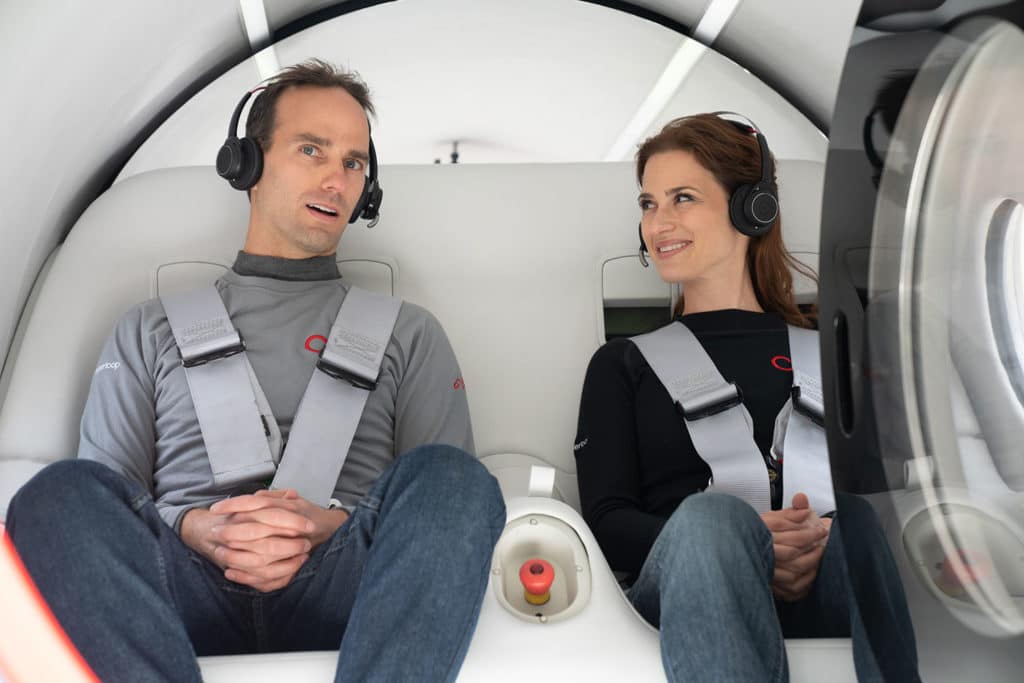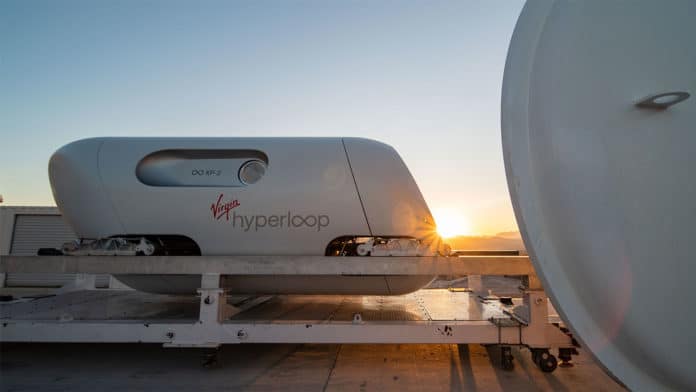Virgin Hyperloop made a transportation history this Sunday (November 09) as it has tested human travel in a hyperloop pod for the first time. The test took place at Virgin Hyperloop’s DevLoop test site in Las Vegas, where the company has previously run over 400 un-occupied tests.
The capsule used was the newly-unveiled XP-2 vehicle, a two-seater Experimental-Pod-2 built with occupant safety and comfort in mind. Representing a scaled-down version of what Virgin Hyperloop hopes will eventually be a full-sized pod capable of carrying up to 23 passengers, the XP-2 was built to demonstrate that passengers can safely travel in a hyperloop environment. The pod accelerated to a brisk 100 mph (160 km/h) down the length of the track before slowing down to a stop.

The XP-2 weighs 2.5 tons and measures about 15-18 feet long. Its lush white interior is meant to be familiar to passengers, who may not be immediately comfortable with the idea of slingshotting through a vacuum-sealed tube.
Virgin Hyperloop has been testing its passenger pods at its 500 meters long and 3.3 meters in diameter DevLoop test track in the Nevada desert. These magnetically levitating pods travel through near-vacuum tubes and are designed to eventually hit speeds of around 1,200 km/h (745 mph).
The company has previously said it hopes to achieve safety certification by 2025 and have a commercial service up and running by 2030. “With today’s passenger testing, we have successfully answered this question, demonstrating that not only can Virgin Hyperloop safely put a person in a pod in a vacuum environment but that the company has a thoughtful approach to safety which has been validated by an independent third party,” said Jay Walder, CEO of Virgin Hyperloop.
In India, the Government of Maharashtra has deemed hyperloop a public infrastructure project and approved the Virgin Hyperloop-DP World Consortium as the Original Project Proponent (OPP) for the Mumbai-Pune hyperloop project. This is a landmark announcement for building the Pune-Mumbai hyperloop transportation system, recognizing hyperloop technology alongside other more traditional forms of mass transit. Further, Virgin Hyperloop is looking to work with central authorities in India to explore a regulatory path for hyperloop in the country.
